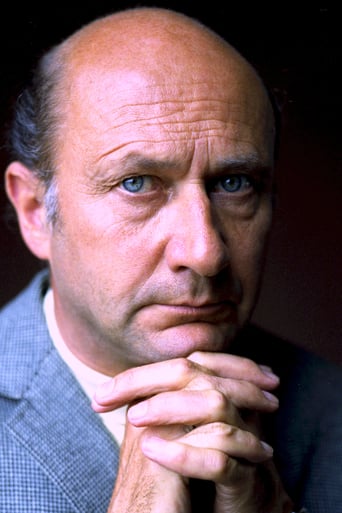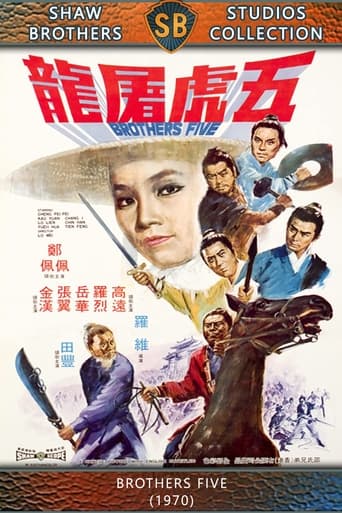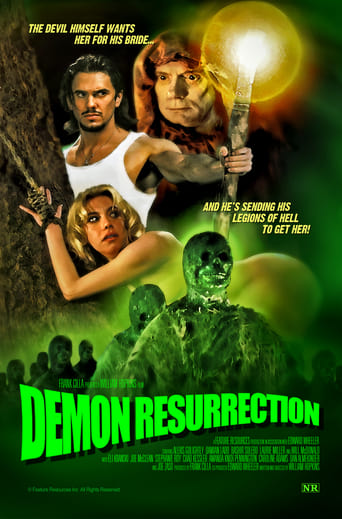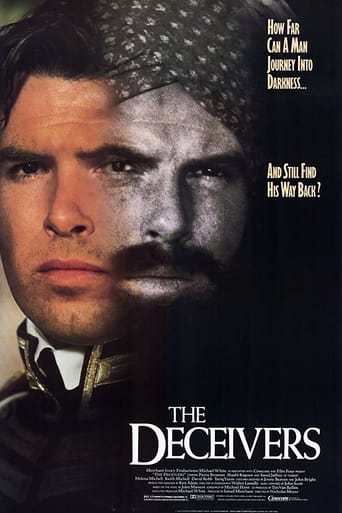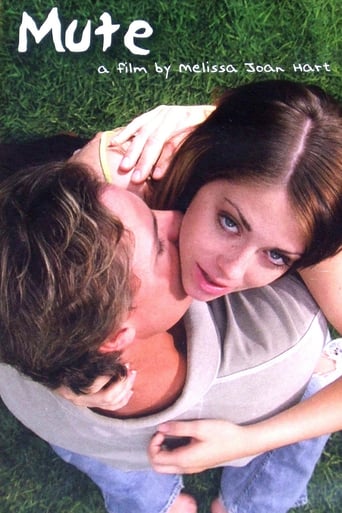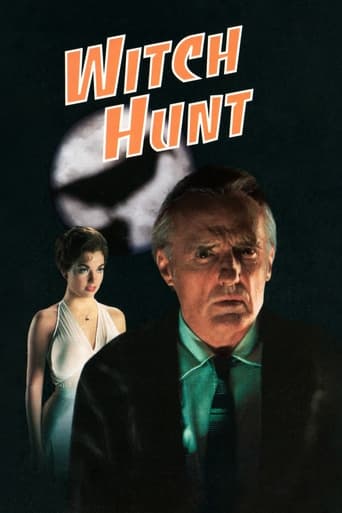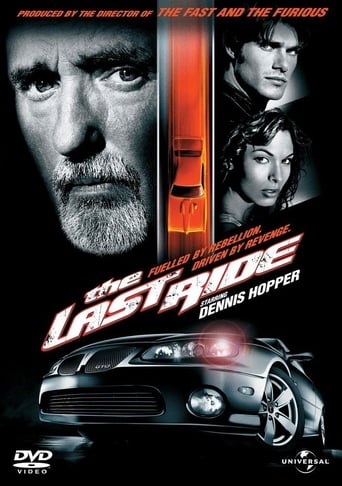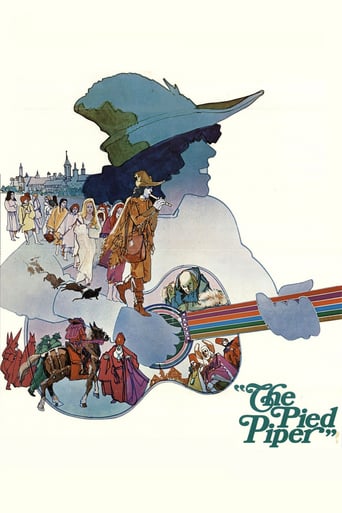
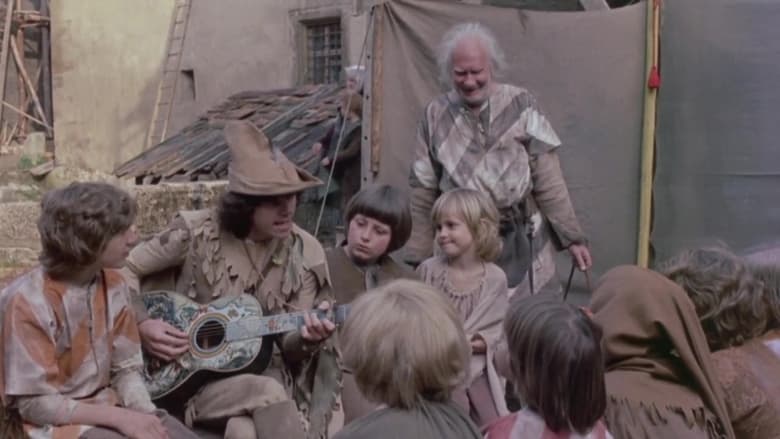
The Pied Piper (1972)
Greed, corruption, ignorance, and disease. Midsummer, 1349: the Black Death reaches northern Germany. Minstrels go to Hamelin for the Mayor's daughter's wedding to the Baron's son. He wants her dowry to pay his army while his father taxes the people to build a cathedral he thinks will save his soul. A local apothecary who's a Jew seeks a treatment for the plague; the priests charge him with witchcraft. One of the minstrels, who has soothed the Mayor's daughter with his music, promises to rid the town of rats for the fee. The Mayor agrees, then renigs. In the morning, the plague, the Jew's trial, and the Piper's revenge come at once.
Watch Trailer
Cast
Similar titles

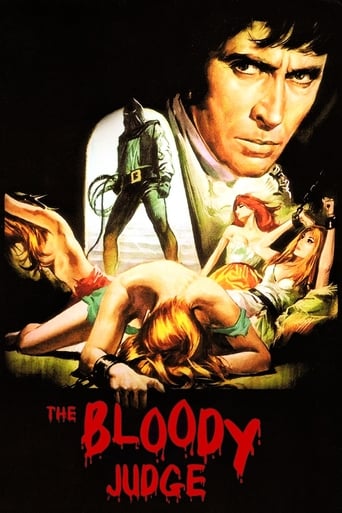
Reviews
Best movie of this year hands down!
This is a small, humorous movie in some ways, but it has a huge heart. What a nice experience.
The plot isn't so bad, but the pace of storytelling is too slow which makes people bored. Certain moments are so obvious and unnecessary for the main plot. I would've fast-forwarded those moments if it was an online streaming. The ending looks like implying a sequel, not sure if this movie will get one
The joyful confection is coated in a sparkly gloss, bright enough to gleam from the darkest, most cynical corners.
It's not the free-spirited musical one would expect given that Donovan, the high priest of pop psychedelia, has the title role. Nor is it anything approaching a children's film. This is a grim, unrelentingly downbeat telling of the classic tale of a piper who rids a German burgh of black plague-infested rats...at least in part...as the piper is off screen for most of the film. Instead, director Jacques Demy focuses on the politics of Hamelin and the infighting between town officials Roy Kinnear, John Hurt, Donald Pleasence and others. Hurt, as a sleazy royal, marries an 11 year old girl, much to the chagrin of Jack Wild (as a lame artist). There's even a burning at the stake! Despite the identity crisis the film suffers from, it's still fairly intriguing, capturing depressing village life of 1349. Donovan sings a few songs and does indeed lead the rats out of the village (among other things) and the acting is all great, particularly by Hurt. A very blowzy Diana Dors plays Kinnear's wife (one shutters thinking about THAT courtship).
When I began watching "The Pied Piper" I assumed it would be a children's movie. After all, it starred pop singing star, Donovan, and is a tale traditionally told to kids. However, soon after it began I could tell this was no child's tale! Instead of the version I heard, this one is set during the time of the Black Death in the mid-1300s and is a tale about superstition, hypocrisy, wretchedness and greed. The version I'd heard as a child was more just a story about greed.Hamelin, Germany is a town possessing three sorts of people--smart people (and I counted only three--Gavin, the Alchemist and the Piper), greedy turds (all the church people and leaders of the town) and assorted victims just waiting to get it! When the Plague nears, the smart Alchemist somehow knows the rats carry the disease (how he knows, we are never sure) and warns the town that they must rid themselves of the rats. At first, no one takes him seriously but when the rat population explodes, the folks in town become revolting (insert own joke) and the town's officials are forced to do something other than scrounge for money or conscripts in some god-awful war for the Papacy.You probably are familiar with the rest of the tale, but if you aren't, the Piper agrees to remove the rats IF they pay him a thousand gilders. They readily agree, but after the miraculous feat occurs, they stiff him--saying they'll give him fifty and he should be happy to have that! Nice, huh?! So, to teach them a lesson (or perhaps he's a pedo), he plays his pipe again and the kids of town all follow him and disappear forever. The towns folk don't realize what's happening, as they're too busy burning the Alchemist alive for 'causing the Plague'! Only the handicapped kid, Gavin, is spared, as he walks too slow to keep up with the Piper. Whether this is a good thing or not is a bit vague--after all, what would a grown man want to do with all those kids?!? The film is well-made but also a really creepy movie from start to finish. It is more a story about stupidity and karmic retribution--not bad topics, really, but far from a fun film for the entire family! The costumes and sets were very nice but the whole film is a creepy downer (though I must admit the depiction of Plague was VERY sanitized). I know it's not in the traditional tale, but I wanted to have some reassurance the Piper was not a serial killer, pedophile or owner of a dog food company!!! By the way, in one scene Donovan plays a modern six-string guitar--something not invented until very recently. The original four and five-stringed varieties were not even invented until 100-200 years after the film was set.
I had seen this one ages ago on local TV, back in the early 1980s when our set was still in black-and-white! Naturally, I welcomed Paramount’s idea to let Legend Films release it on DVD albeit bare-bones, and I luckily happened upon it in (arguably) Malta’s best-stocked DVD rental store when it comes to vintage Hollywood movies.I’ve been a fan of Fairy Tales every since early childhood when illustrated Maltese translations of the Brothers Grimm’s famous stories where constant companions during the Summer holidays and, when my main interest migrated to film, I eagerly sought out examples of this type. The French seemed to do the genre particularly well – Ladislaw Starewicz’s delightful pioneering puppet classic THE TALE OF THE FOX (1931), Jean Cocteau’s enchanting LA BELLE ET LA BETE (1946) and the charming animated fable LE ROI ET L’OISEAU (1979). Jacques Demy also tried his hand at this by bringing DONKEY SKIN (1970) to the screen with Catherine Deneuve, Jacques Perrin, Jean Marais and Delphine Seyrig. In fact, THE PIED PIPER was his next project and follows similar lines – even if it’s a British production shot in Germany, though still with an equally remarkable cast: Jack Wild, Donald Pleasence, John Hurt, Michael Hordern, Peter Vaughan, Roy Kinnear, Diana Dors and, in the titular role, folk singer Donovan! The general consensus about Demy is that his career peaked early (late 1960s) and progressed engagingly but unremarkably towards an untimely end (early 1990s); actually, I haven’t seen any of his acknowledged masterpieces yet – I do own THE UMBRELLAS OF CHERBOURG (1964) on R2 DVD, though, and also have the ultra-rare LADY Oscar (1979) in my unwatched pile.While Maltin gives this version of THE PIED PIPER (incidentally, the 1957 TV-film with Van Johnson and Claude Rains is also available for rental over here) a very generous , most other reviews of the film I’ve come across were usually mixed and less enthusiastic. In fact, I’d say that its unexpectedly grim tone got to be a bit much at times and left one with a sour taste in the mouth; besides, in spite of Demy’s detached approach (with very few close-ups throughout), the whole still felt somewhat claustrophobic. Even so, the actors, the décor, the costumes and the music eventually save the day: Wild has probably his most significant role after OLIVER! (1968) as Jewish alchemist Hordern’s lame assistant; Pleasence and Hurt are truly despicable as greedy father and son and the town’s chief citizens; Kinnear and Dors as the burgomaster and his wife who want to marry off their teenage offspring (Cathy Harrison, Rex’s daughter) to Hurt; Peter Vaughan is a bloodthirsty Bishop who eventually has Hordern burned alive at the stake.The troupe of traveling players in a plague-ridden medieval town cannot help but raise comparisons with Ingmar Bergman’s THE SEVENTH SEAL (1957), while the onslaught of the rats (at one point coming out of the wedding cake!) might well have influenced a similar scene in Werner Herzog’s NOSFERATU THE VAMPYRE (1979). Finally, Donavan’s score is pleasant if not quite memorable – his performance is equally decent even if, the film’s title notwithstanding, he is not really the main character!
Watching this recently, I remembered certain scenes from when I watched it as a child of about 7 or 8, some twenty-five years ago. That is testament to how effective some of The Pied Piper is. Indeed, in some ways it hardly qualifies as a "childrens' film" at all, as it starts with a picture of a heretic being burned at the stake and ends with the death of one of the main characters by the same means. Clearly Demy had Bergman's The Seventh Seal in mind for the general feel of the film, which stresses the irrationality and brutality of the times. However, the screenwriters and Demy add another ingredient - the political chicanery of the Church, the aristocracy and the merchant class, sometimes colluding together, at other times each promoting their own special interests. It's not difficult to read the film as a quasi-Marxist parable about feudal society, and the film-makers clearly intended something of the sort. If that makes it all sound very heavy, actually the film is fairly fast-moving and fun, especially because of the wonderfully comic grotesque playing of Donald Pleasance and Roy Kinnear. Fans of these actors should definitely seek this film out - Pleasance is as good as he was in "Death Line" (AKA "Raw Meat") made about the same time, and Kinnear is nearly as good as he was in "Juggernaut", another overlooked but very interesting British film of the early 70s. There is also a very good performance from Michael Hordern as the rationalist alchemist, one of his better and most substantial but unfortunately least known performances. Nostalgia fans can also take pleasure in remembering a time when Jack Wild, made famous by "Oliver", was considered a star. The Pied Piper deserves its mixed critical reputation. Demy does not here have the firm control over his material he had in earlier films. The main flaw is the total lack of characterisation of the Piper, and the terrible non-acting of the folk singer Donovan in that role. His musical interludes are just embarrassing and the worst thing about the film (for a similar ruining of a otherwise thoughtful historical film by a miscast singing star, see 1969's "Where's Jack?" with Tommy Steele). This is a pity as the socio-political stuff at the edges of the film, plus the costumes and scenery, are very good indeed. Overall, this is certainly worth a watch if it turns up on TV or you might, as I did, seek it out on a secondhand VHS cassette. It is not a major film but it's an endearing oddity, and certainly a must-see for Demy students or fans of Brtish film in the early 70s.


